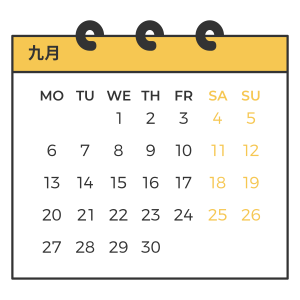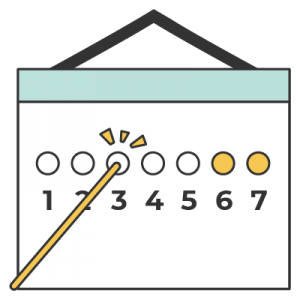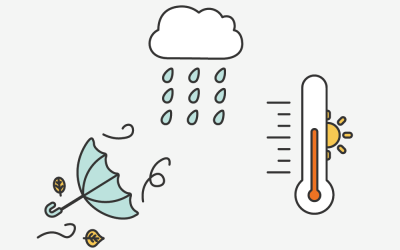The knowledge of tense is very important when it comes to learning a foreign language. To a certain extent, the Chinese grammar is considered to be less complex than that of European languages. For instance, there is no conjugation in the Chinese language, and the plural form is only used in a very limited number of situations. However, there are different forms of tense that Chinese people use depending on the situation, and we will be focusing on the future tense in this article.
A Verb Used On Its Own
A verb used on its own can indicate either the present tense or the future tense depending on the context.
Examples:
我每天喝咖啡 (wǒ měi tiān hē kā fēi)。= I drink coffee every day.
我明天去北京 (wǒ míng tiān qù běi jīng)。= I’m going to Beijing tomorrow.
Vocabulary:
每天 (měi tiān): every day
喝 (hē): to drink
明天 (míng tiān): tomorrow
去 (qù): to go
会 (huì) + verb
Apart from meaning “can do something”, “会 (huì)” can also mean “will do something” if the action comes after is not about a certain skill.
Examples:
我星期三会去上班 (wǒ xīng qī sān huì qù shàng bān)。= I will go to work on Wednesday.
Vocabulary:
星期三 (xīng qī sān): Wednesday
上班 (shàng bān): to work, to start working
要 (yào) + verb + 了 (le)
Although the word “了 (le)” is part of this structure, it’s got nothing to do with the past tense. Contrarily, this structure means “will do something pretty soon”.
Examples:
我要吃晚饭了 (wǒ yào chī wǎn fàn le)。= I’ll have dinner pretty soon.
Vocabulary:
吃晚饭 (chī wǎn fàn): to eat dinner
快要 (kuài yào) + verb + 了 (le)
The meaning of this structure is almost the same as that of the one above. With the use of “快 (kuài)”, which means “fast”, it emphasizes that the action will take place very soon. A similar structure to this would be “就要 (jiù yào) + verb + 了 (le)”, in which “就 (jiù)” means “right, just”.
Examples:
我快要回北京了 (wǒ kuài yào huí běi jīng le)。= I’m going back to Beijing pretty soon.
Vocabulary:
回 (huí) = to go back, to return

不 (bù) + verb
When it comes to a negative statement, “不 (bù) + verb” refers to either the present tense or the future tense depending on the context.
Example:
我今天晚上不学中文 (wǒ jīn tiān wǎn shàng bù xué zhōng wén)。= I’m not going to study Chinese tonight.
不 (bù) + verb + 了 (le)
Again this structure is not related to the past tense, and it means “will not do something”. With the use of “了 (le)”, this structure sounds more decisive than the one above.
Example:
我不看这个电影了 (wǒ bù kàn zhè gè diàn yǏng le)。= I will not watch this movie.
Vocabulary:
看 (kàn): to look at, to watch
电影 (diàn yǏng): movie
不会 (bù huì) + verb
Bearing in mind that “会 (huì) + verb” means “will do something” in various situations, it’s easy to deduce that “不会 (bù huì) + verb” means “will not do something”, and its meaning and degree of emotion are very close to the one above.
Example:
他明天不会来 (tā míng tiān bù huì lái)。= He won’t come tomorrow.
Vocabulary:
来 (lái): to come

We hope you enjoyed reading! For more information on Chinese structure, click the link below!
https://www.thatsmandarin.com/blog/5-useful-chinese-phrases/












very clear explanation